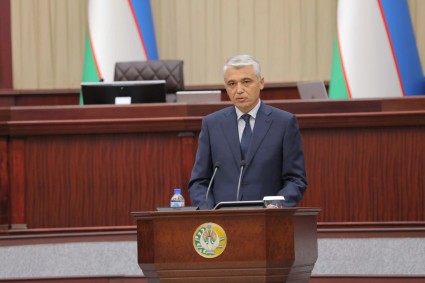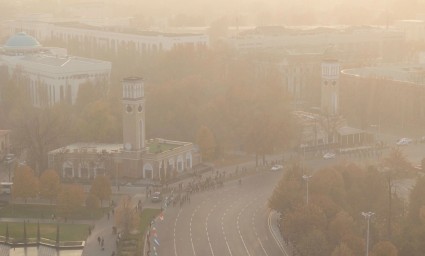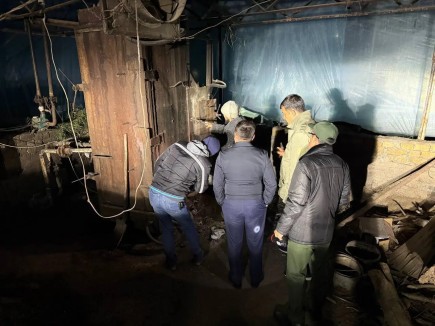At a meeting of the Legislative Chamber on Tuesday, the Minister of Construction, Housing, and Communal Services Sherzod Khidoyatov touched upon problems in the wastewater treatment system and measures being taken to address them.
All of our country's treatment facilities are designed for domestic wastewater and are unable to treat chemically contaminated wastewater discharged by industrial enterprises, he noted.
According to him, there are approximately 15,000 enterprises in the country that are the main polluters of wastewater, and their activities cause serious damage to the technological processes of treatment facilities.
Chemicals destroy the so-called 'activated sludge,' a key element of the biological treatment process, resulting in a sharp reduction in treatment efficiency. This is the main cause of the unpleasant odor emitted by treatment facilities, he explained.
The minister noted that this situation also created difficulties in selecting technologies for the construction and modernization of treatment facilities, and sometimes forces changes to existing solutions, leading to higher project costs.
According to him, current indemnity fees for exceeding pollution standards remain disproportionately low.
For example, tanneries pay an average of 1.3 million soums per month. Installing a local treatment plant requires over one billion soums, so companies prefer to pay compensation. If you pay 1.3 million soums monthly, then over 64 years, it will amount to one billion, the minister noted.
According to the minister, on the directives of the country's leadership, the Cabinet of Ministers Resolution No. 361 was adopted on June 12, 2025, aimed at tightening environmental controls. Effective October 1, the size of indemnity for discharge of pollutants—such as waste from tanneries, textiles, oil refining, oil and fat processing, and poultry farms—has been increased 20-fold.
Furthermore, the resolution introduces, for the first time, a categorization of water bodies into four categories based on their environmental vulnerability.
Khidoyatov also noted that, to improve the efficiency of existing treatment facilities and tighten wastewater disposal procedures, a draft Improving the wastewater disposal system Resolution has been developed and is currently being coordinated with ministries and agencies.
The draft envisages the introduction of recirculating water cycles at industrial facilities, the installation of local treatment facilities, and the localization of equipment for treatment systems, he said.
As previously reported, five foreign companies are implementing wastewater treatment projects in Tashkent and other provinces of Uzbekistan.
In 2021, five tanneries in Sergeli district were scheduled to be relocated outside of Tashkent. Administrative cases have been opened against 22 officials of companies and organizations in the capital for discharging untreated wastewater into treatment facilities.
In August, Akhmad Suvonkulov, acting chairman of the board of directors of Uzsuvtaminot, stated that 68 wastewater treatment facilities are planned to be built in the 68 New Uzbekistan communities over the next five years.














